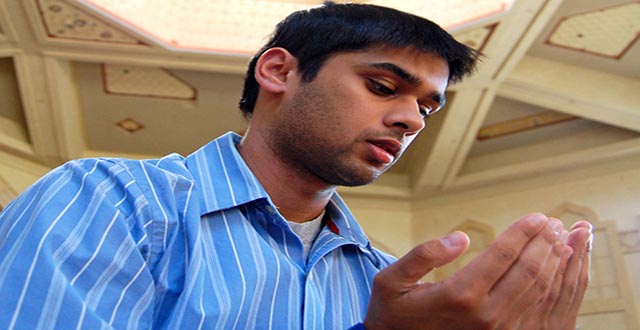7 Importance of The Holy Qur’an
The first lesson is about the importance of the Holy Qur’an. The Qur’an is the Book of Allah subhaanahu wa ta‘aalaa. Every word in the Qur’an has come from Allah. That is why we say that it is a Holy Book. The words in the Qur’an were sent by Allah to Prophet Muhammad sallal-laahu ‘alayhi wa-aalihi wa sallam. The Prophet (S) received the words of Allah through angel Jibra’eel. This Qur’an is a Holy Book that was not written by anyone but sent by Allah to Prophet Muhammad (S) through Jibra’eel.
1. It is the most truthful speech: Prophet Muhammad (S) regularly read the words of Allah to Muslims around him. These Muslims were very pleased and excited to receive the words of Allah. Prophet Muhammad (S) said: The most truthful speech, the most eloquent advice, and the greatest stories are in the Book of Allah. The Muslims listened carefully to what the Prophet read, memorized the sentences and passages of the Qur’an, recited them regularly and followed the teachings of the Qur’an. In order to preserve the words of Allah the Prophet appointed special people known as “Scribes of the Qur’an” to write down the words of Allah.
2. It is in original language: Prophet Muhammad (S) was an Arab and the majority of people in Mecca and Medina spoke Arabic. Therefore the Qur’an was sent in Arabic. Arabic is written from right to left. It is better to learn to read the Qur’an in its original language. Therefore, we will put efforts to learn Qur’an written in Arabic instead of simply reading its translation in other languages.
3. The Holy Qur’an contains Allah’s message to all people. It tells people how to act correctly. It guides us to a correct way of life in this world. The Book of Allah also talks about life after death. It tells us that Allah has prepared Paradise for good people and Hell for bad people. The Qur’an encourages the worship of only one God Who creates and provides for them. The Book forbids people from evil and condemns those who do wrong. It contains stories of the past Prophets and the examples of bad and good people. People are advised in the Qur’an to be good to others and respect them. It teaches people to live in peace and harmony.
4. Qur’an brings happiness in this world and the Hereafter. Following the Qur’an brings happiness in this world and the world after death. The Prophet (S) said: If you desire the life of the fortunate, the death of a martyr, the salvation on the Day of Regret and the shade on the Day of Extreme Heat, then you should study the Qur’an because it is the word of the Merciful, a sanctuary from Shaytaan and a causes the tilting of the Balance. In another Hadith we read that the Prophet (S) has said: The recitor of the Qur’an will be spared from the calamities of the Hereafter.
5. It is the only Divine book that has remained unchanged. Allah sent the Qur’an to His Prophet. A book sent by Allah to people is known as a Divine Book or a Heavenly Book. Other Divine Books were also sent to previous prophets. These are: Suhoof to Prophet Ibraheem ‘alayhis salaam; Zaboor to Prophet Dawood ‘alayhis salaam; Tawraah to Prophet Moosaa ‘alayhis salaam; and Injeel to Prophet ‘Eisaa ‘alayhis salaam.
The difference between the Qur’an and past revealed books is that the Qur’an is the only Divine Book that has remained unaltered. The Qur’an we have with us contains exactly the same message that was sent to Prophet Muhammad by Allah through Jibra’eel.
6. Our supplications get answered if we were to pray after reading the Holy Qur’an. The Prophet (S) said: One who starts the Qur’an and finishes it, Allah will grant him one answered supplication. It also helps in strengthening our faith. Imam Ali (a) said: Reciting the Qur’an plants the seed of faith.
7. The Qur’an is the best companion. It can be of great help when a child or adult is feeling lonely. Imam Ali Zaynul ‘Aabideen (a) said: If all who live between the East and West perish, I will have no fear as long as I have the Qur’an with me.










